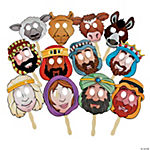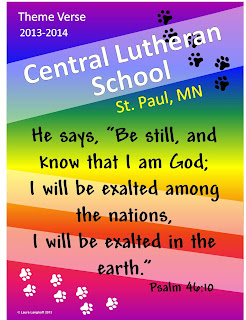Artificial Maturity
I've watched kids change over the past 25 years but kids are a product of parenting and today
parents do far too much for their kids. Grades can be changed when parents complain and blame the teachers. It's getting more and more difficult to find kids who know what it means to fail and if you can't fail you don't experience real success. In the book
Artificial Maturity and in many others he's written on generation iY Tim Elmore talks about what's going wrong with kids and here's an article that summarizes his position very well,
Are We Raising a Generation of Helpless Kids? From what I've seen in education in the past 15 or so years he is spot on. The answer is really quite simple. From day one you have to let your children fall down. "That's so mean! Why would I do that?" So that they can pick themselves up again. So that they learn that
they can pick themselves up again. So that they know that falling down is not the end of the world.
Artificial Faith
It would appear we may be doing the same thing in the church. We're so concerned that kids will not have faith that we do everything we can to have faith for them or try to convince them that it's beneficial by making it always upbeat and fun and hoping that if they feel good about it that they will keep it. We have a generation (or more) of kids who are now conditioned to expect instant gratification and there is
nothing about faith that is instant except the moment when we receive it at baptism. I've recently had the following insights about messages we may be sending:
- Jesus is AMAZING and AWESOME! Faith moves mountains and with Jesus anything is possible. Yes, but the ways of God are not the ways of man and we seem to expect Him to adjust the world or our lives in order for us to be successful and happy in this world.
- Parents keep telling kids they are special, we tell kids they are special, we tell kids God thinks they are special enough for Jesus to die for all the bad things they've done. Yes, but being special to God is not about being treated special and repentance is not about saying we're sorry so we don't have to be grounded anymore.
- God has a plan for our lives. Yes, but we often confuse God's plan and our goals. The point is not to find His plan or His will. The point is to trust that He is in charge and live according to His Word and do our best to see Him in every circumstance life brings in whatever job we choose.
- Trusting God makes our lives run more smoothly. Yes, but it doesn't mean we won't have any problems or don't have to deal with anything or resolve our own problems. God is not a puppet master who will make everything in our lives easy.
- Kids get everything they want when they want it and expect God to respond instantly. Again, God's time is not our time. His ways are not our ways. His NO is more often His WAIT but we've taught kids that they don't have to wait for anything and when they do they lose interest.
- God wants us to be happy. Yes, but God's goal is that we trust Him, do His work in the world, love people as Jesus did, and live authentic Christian lives until we can be with Him for eternity. Our happiness should come from following Him, not attaining success or status in the world.
- Real faith brings happiness. Yes, but we need to stop doing everything we can to help kids feel their faith. I thank God every day as I run through about 500 different emotions that my faith is not about how I feel. We need to live our faith outside of our feelings to show them the truth of what it is.
In the same way that kids develop maturity by struggling with life, they develop faith by learning more about God while struggling with life. We pray, educate, and trust that their faith is strengthened and that they will turn to God on their own as they struggle to make life choices. We do it so that they learn that when they make mistakes, when life isn't fun and exciting or going well that they
know God is with them.
You see, in spite of all those comforting messages we think we're sending, kids still feel alone, their grades aren't getting better, their family is still a mess, their dad still hits them when he's drunk, kids still pick on them at school, single moms still leave them home alone for too long, they may not have much food for dinner every night... life is hard. When that happens those messages ring hollow. The more we attach faith to feelings the less we can blame kids for not continuing to attend church after they graduate from high school. Life is a lot longer as an adult than a teenager. No more artificial faith!
To learn more about Tim Elmore and his non-profit leadership building foundation check out
Growing Leaders Foundation.






















